Jujube
How to submit an article:
- Registered users can submit any published journal article that has a unique DOI (Digital Object Identifier) name or link to Research Hub.
- For example, you can paste the full DOI link:
https://doi.org/10.1109/5.771073or just the DOI name:10.1109/5.771073into the field above and click submit. - The person who is first to submit a valid article to Research Hub will forever be credited for it, and every article submission earns you +6 Research Points.
Also known as: Chinese Red Date, Ziziphus Jujuba
Related Topics
Published research studies are articles that present the findings of original research that has undergone a peer-review process and has been made publicly available in scholarly journals, books or other media.
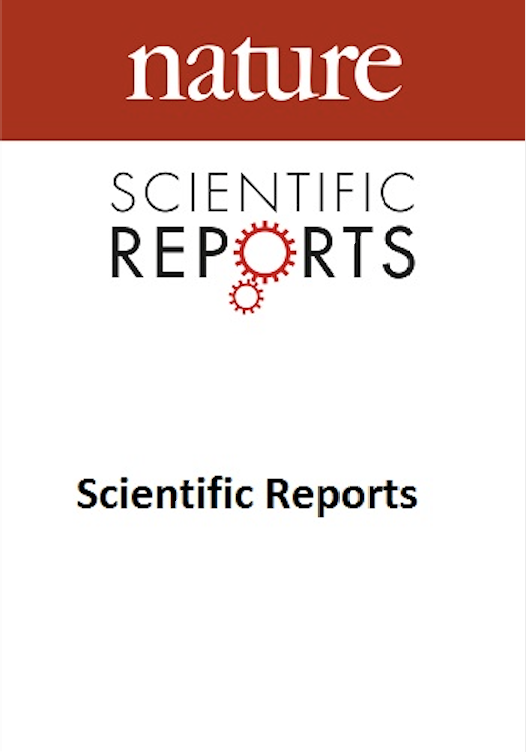
Comparison of Ziziphus jujube Mill. Syrup versus polyethylene glycol in children with functional constipation: a randomized clinical trial
2025 Jan 11 Scientific Reports Keihanian F, Maleknejad S, Saeidinia A, Soltanipour S, Pirooz A
Clinical Study Randomised Controlled Trial Children's Health Constipation JujubeJujube syrup presented improved results in treating pediatric functional constipation compared to polyethylene glycol, demonstrating a potentially effective and safe alternative treatment.

Ziziphus jujube promotes fertility and pregnancy outcomes in Rat model of uterine adhesions
2025 Jan 27 Frontiers in Pharmacology Asgharzadeh F, Attarian M, Khazaei M, Al-Asady AM, Mansoori S, Naimi H, et al.
Treatment with resulted in a significant reduction in uterine tissue fibrosis, positive outcomes in embryonic development, pregnancy rates, and pregnancy outcomes, as well as inhibition of formation of extra-uterine adhesion bands to internal organs.
Animal Study Pregnancy Uterine Adhesion Endometriosis Jujube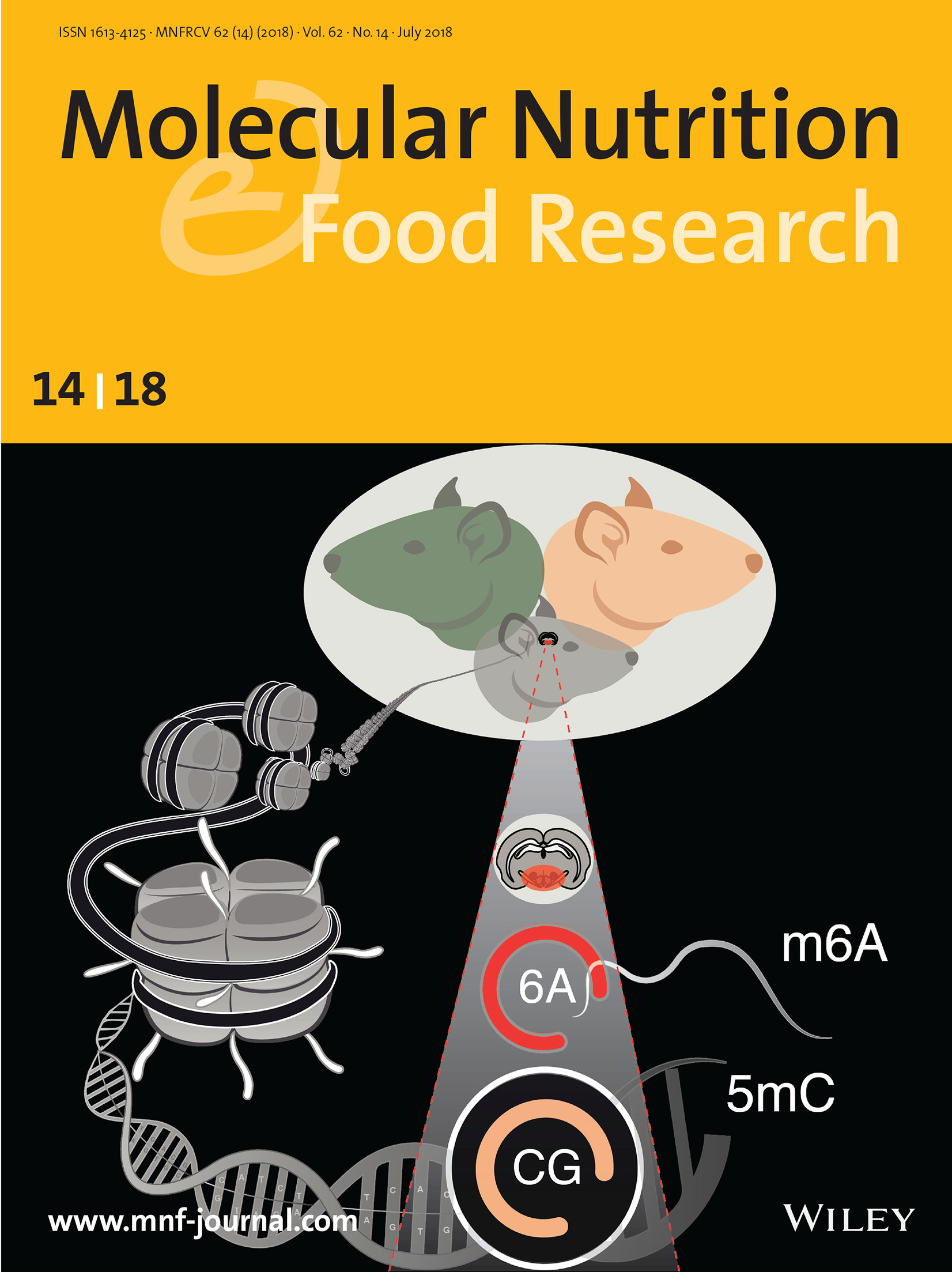
Lactobacillus acidophilus 6074 Fermented Jujube Juice Ameliorated DSS‐induced Colitis via Repairing Intestinal Barrier, Modulating Inflammatory Factors, and Gut Microbiota
2024 Dec 15 Molecular Nutrition & Food Research Li H, Fan L, Yang S, Tan P, Lei W, Yang H, et al.
Animal Study Lactobacillus Gut Microbiota Colitis JujubeOral administration of Lactobacillus acidophilus 6074 fermented jujube juice can improve gut microbiota, alleviate intestinal inflammation, and reduce colon damage in mice.
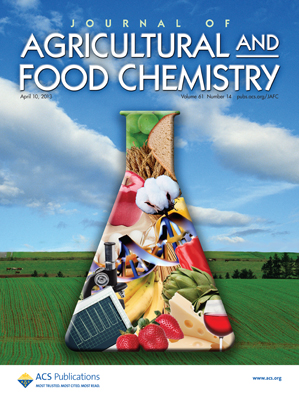
Immunomodulatory Acidic Polysaccharide from Jujube Fruit (Zizyphus jujuba Mill.): Insight into Their Chemical Characteristics and Modes of Action
2024 Dec 20 Journal of Agricultural and Food Chemistry Feng L, Ju M, Ma C, Li K, Cai S
Experimental Study Animal Study JujubeThe ZJMP-2 polysaccharide fraction from jujube, consisting of various sugars and acid, significantly enhances immune cell activity and stimulates lymphocyte proliferation.
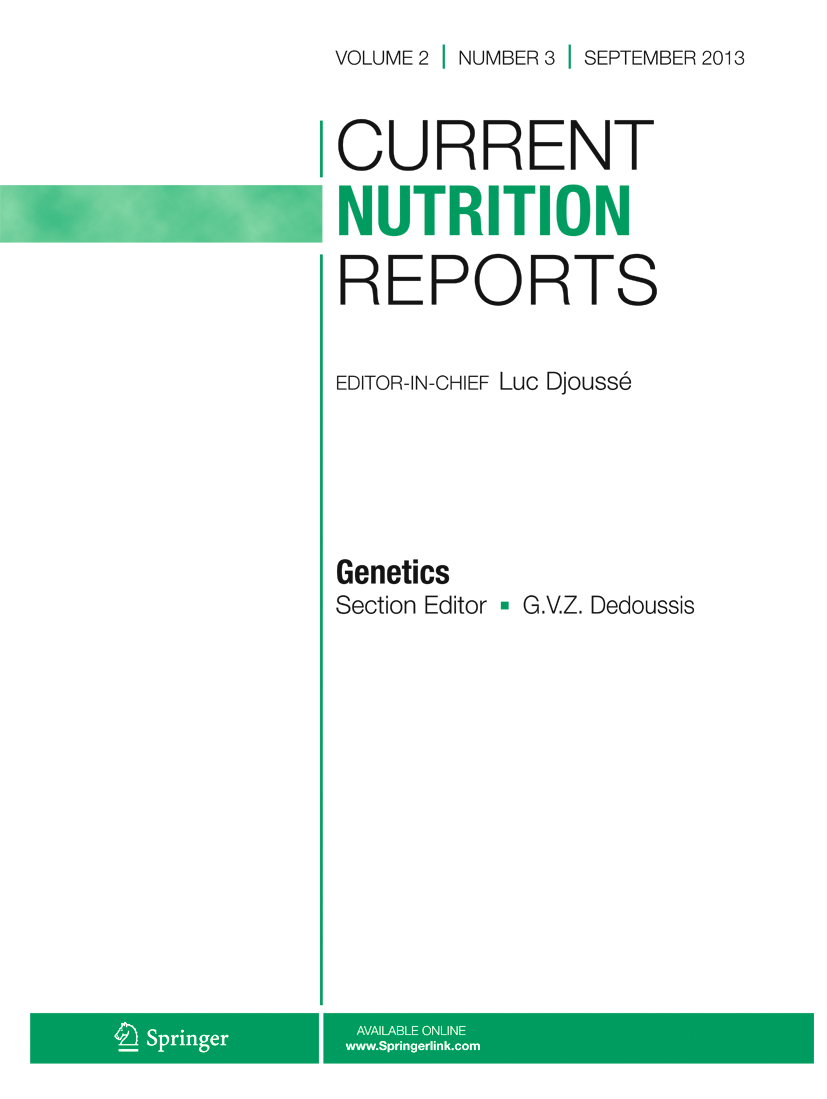
Ziziphus jujuba (Jujube) in Metabolic Syndrome: From Traditional Medicine to Scientific Validation
2024 Oct 01 Current Nutrition Reports Ghasemzadeh Rahbardar M, Fazeli Kakhki H, Hosseinzadeh H
Review Article Obesity Type 2 Diabetes Metabolic Syndrome High Blood Pressure JujubeZiziphus jujuba and its main components, lupeol and betulinic acid, show promise in treating complications of metabolic syndrome, including diabetes, obesity, and hypertension.
Research insights are moderated by the Research Hub team and offer an at-a-glance overview of interesting research findings.

2025 Scientific Reports
Jujube syrup presented improved results in treating pediatric functional constipation compared to polyethylene glycol, demonstrating a potentially effective and safe alternative treatment.
Clinical Study Children's Health Constipation
Comparison of Ziziphus jujube Mill. Syrup versus polyethylene glycol in children with functional constipation: a randomized clinical trial
Keihanian F, Maleknejad S, Saeidinia A, Soltanipour S, Pirooz A

2024 Journal of Agricultural and Food Chemistry
The ZJMP-2 polysaccharide fraction from jujube, consisting of various sugars and acid, significantly enhances immune cell activity and stimulates lymphocyte proliferation.
Experimental Study
Immunomodulatory Acidic Polysaccharide from Jujube Fruit (Zizyphus jujuba Mill.): Insight into Their Chemical Characteristics and Modes of Action
Feng L, Ju M, Ma C, Li K, Cai S

2024 Molecular Nutrition & Food Research
Oral administration of Lactobacillus acidophilus 6074 fermented jujube juice can improve gut microbiota, alleviate intestinal inflammation, and reduce colon damage in mice.
Animal Study Colitis Gut Microbiota Lactobacillus
Lactobacillus acidophilus 6074 Fermented Jujube Juice Ameliorated DSS‐induced Colitis via Repairing Intestinal Barrier, Modulating Inflammatory Factors, and Gut Microbiota
Li H, Fan L, Yang S, Tan P, Lei W, Yang H, et al.

2024 Current Nutrition Reports
Ziziphus jujuba and its main components, lupeol and betulinic acid, show promise in treating complications of metabolic syndrome, including diabetes, obesity, and hypertension.
Review Article High Blood Pressure Metabolic Syndrome Obesity Type 2 Diabetes
Ziziphus jujuba (Jujube) in Metabolic Syndrome: From Traditional Medicine to Scientific Validation
Ghasemzadeh Rahbardar M, Fazeli Kakhki H, Hosseinzadeh H
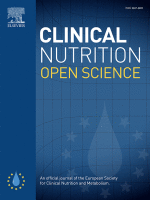
2024 Clinical Nutrition Open Science
Daily intake of Ziziphus jujuba can control weight and improve lipid profile indicators.
Meta-Analysis Metabolic Syndrome
The effect of consumption Ziziphus jujuba on metabolic factors: A systematic review and meta-analysis of randomized clinical trials
Heydarian A, Tahvilian N, Shahinfar H, Abbas-Hashemi SA, Bahari H, Cheshmeh S, et al.
Review Articles
Review articles summarise and critically evaluate the current state of research on a specific topic or field by synthesising multiple primary research studies.

Ziziphus jujuba (Jujube) in Metabolic Syndrome: From Traditional Medicine to Scientific Validation
2024 Oct 01 Current Nutrition Reports Ghasemzadeh Rahbardar M, Fazeli Kakhki H, Hosseinzadeh H
Review Article Obesity Type 2 Diabetes Metabolic Syndrome High Blood Pressure JujubeZiziphus jujuba and its main components, lupeol and betulinic acid, show promise in treating complications of metabolic syndrome, including diabetes, obesity, and hypertension.

The effect of consumption Ziziphus jujuba on metabolic factors: A systematic review and meta-analysis of randomized clinical trials
2024 Jun Clinical Nutrition Open Science Heydarian A, Tahvilian N, Shahinfar H, Abbas-Hashemi SA, Bahari H, Cheshmeh S, et al.
Meta-Analysis Systematic Review Metabolic Syndrome JujubeDaily intake of Ziziphus jujuba can control weight and improve lipid profile indicators.
The Potential Role of Ziziphus Jujube in the Management of Chemotherapy-Induced Peripheral Neuropathy
2024 Jun 30 Journal of Tumor Science Research , Talabaki H, Salehifar E,
The review highlights the promising experimental data on Ziziphus extracts and pure active compounds in the treatment of neuropathy.
Review Article Peripheral Neuropathy Chemotherapy-Induced Peripheral Neuropathy Chemotherapy Jujube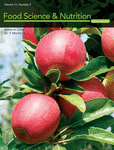
Effects of jujube (Ziziphus jujuba mill.) fruit extracts on oxidative stress: A systematic review and meta‐analysis of rodent studies
2024 May 22 Food Science & Nutrition Zhu D, Zhu Y, Tan H, Ding R, Dai Q, Du X, et al.
Animal Study Systematic Review Oxidative Stress Stress JujubeJujube fruit extracts significantly alleviate oxidative stress in rodent models, potentially offering a valuable dietary supplement against diseases linked to oxidative stress.

A Literature Review of the Pharmacological Effects of Jujube
2024 Jan 06 Foods Zhu D, Jiang N, Wang N, Zhao Y, Liu X
Review Article Cardiovascular Disease Neuroprotective JujubeJujube, a Chinese native plant with numerous active components, exhibits calming effects, nourishes blood, and strengthens the spleen and stomach, alongside promising neuroprotective and cardiovascular benefits.
Clinical Trials
Clinical trials are research studies that involve people and are conducted to evaluate the safety and efficacy of new treatments or interventions, such as drugs, medical devices, or behavioural therapies.

Comparison of Ziziphus jujube Mill. Syrup versus polyethylene glycol in children with functional constipation: a randomized clinical trial
2025 Jan 11 Scientific Reports Keihanian F, Maleknejad S, Saeidinia A, Soltanipour S, Pirooz A
Clinical Study Randomised Controlled Trial Children's Health Constipation JujubeJujube syrup presented improved results in treating pediatric functional constipation compared to polyethylene glycol, demonstrating a potentially effective and safe alternative treatment.

The effects of jujube (Ziziphus jujube) on metabolic and mental health outcomes in patients with metabolic syndrome: A randomized controlled trial
2024 Jun Complementary Therapies in Medicine Parastouei K, Nashtar SB, Al-Attar Z, Shekarchizadeh-Esfahani P, Askari G
Randomised Controlled Trial Stress Triglyceride Cholesterol JujubeConsuming jujube notably reduces waist circumference, triglycerides, and stress, while increasing high-density lipoprotein cholesterol in subjects with metabolic syndrome.
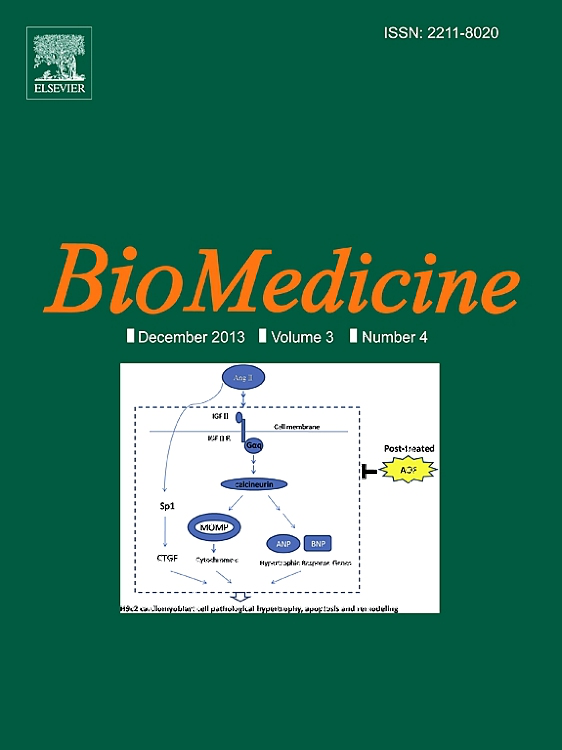
Investigation the effect of jujube seed capsule on sleep quality of postmenopausal women: A double-blind randomized clinical trial
2020 Dec 1 BioMedicine Mahmoudi R, Ansari S, Haghighizadeh MH, Maram NS, Montazeri S.
Randomised Controlled Trial Jujube Sleep Suan Zao RenConsumption of jujube seed had a positive impact on improving the sleep quality of postmenopausal women and could be recommended as a useful herbal medication.
Study Protocols
Published study protocols are detailed plans that outline the objectives, methodology, statistical analyses, and organisation of a research study that have been made publicly available for others to review and use as a reference.
Presentation Slides

Clinical Study
Jujube syrup presented improved results in treating pediatric functional constipation compared to polyethylene glycol, demonstrating a potentially effective and safe alternative treatment.
Keihanian F, Maleknejad S, Saeidinia A, Soltanipour S, Pirooz A

Experimental Study
The ZJMP-2 polysaccharide fraction from jujube, consisting of various sugars and acid, significantly enhances immune cell activity and stimulates lymphocyte proliferation.
Feng L, Ju M, Ma C, Li K, Cai S

Animal Study
Oral administration of Lactobacillus acidophilus 6074 fermented jujube juice can improve gut microbiota, alleviate intestinal inflammation, and reduce colon damage in mice.
Li H, Fan L, Yang S, Tan P, Lei W, Yang H, Gao Z

Review Article
Ziziphus jujuba and its main components, lupeol and betulinic acid, show promise in treating complications of metabolic syndrome, including diabetes, obesity, and hypertension.
Ghasemzadeh Rahbardar M, Fazeli Kakhki H, Hosseinzadeh H

Meta-Analysis
Daily intake of Ziziphus jujuba can control weight and improve lipid profile indicators.
Heydarian A, Tahvilian N, Shahinfar H, Abbas-Hashemi SA, Bahari H, Cheshmeh S, Aryaeian N

Randomised Controlled Trial
Consuming jujube notably reduces waist circumference, triglycerides, and stress, while increasing high-density lipoprotein cholesterol in subjects with metabolic syndrome.
Parastouei K, Nashtar SB, Al-Attar Z, Shekarchizadeh-Esfahani P, Askari G

Animal Study
Jujube fruit extracts significantly alleviate oxidative stress in rodent models, potentially offering a valuable dietary supplement against diseases linked to oxidative stress.
Zhu D, Zhu Y, Tan H, Ding R, Dai Q, Du X, Liu Y, Yue R

Review Article
Jujube, a Chinese native plant with numerous active components, exhibits calming effects, nourishes blood, and strengthens the spleen and stomach, alongside promising neuroprotective and cardiovascular benefits.
Zhu D, Jiang N, Wang N, Zhao Y, Liu X

Experimental Study
The fermented jujube seeds extract significantly enhances sleep by binding to the GABA receptors, thus offers a promising natural alternative for sleep disorders treatment.
Bae GY, Ahn Y, Hong KB, Jung EJ, Suh HJ, Jo K

Review Article
Chinese jujube contains cAMP, a compound usually absent in plant cells, which may accelerate our understanding of plant cAMP metabolism.
Yuan Y, Liu ZG, Feng C, Liu MJ

Review Article
Jujube nutrients may offer potential therapeutic benefits including antioxidant, antibacterial, anti-inflammatory functions, and improving sleep quality and learning.
Hua Y, Xu X, Guo S, Xie H, Yan H, Ma X, Niu Y, Duan JA
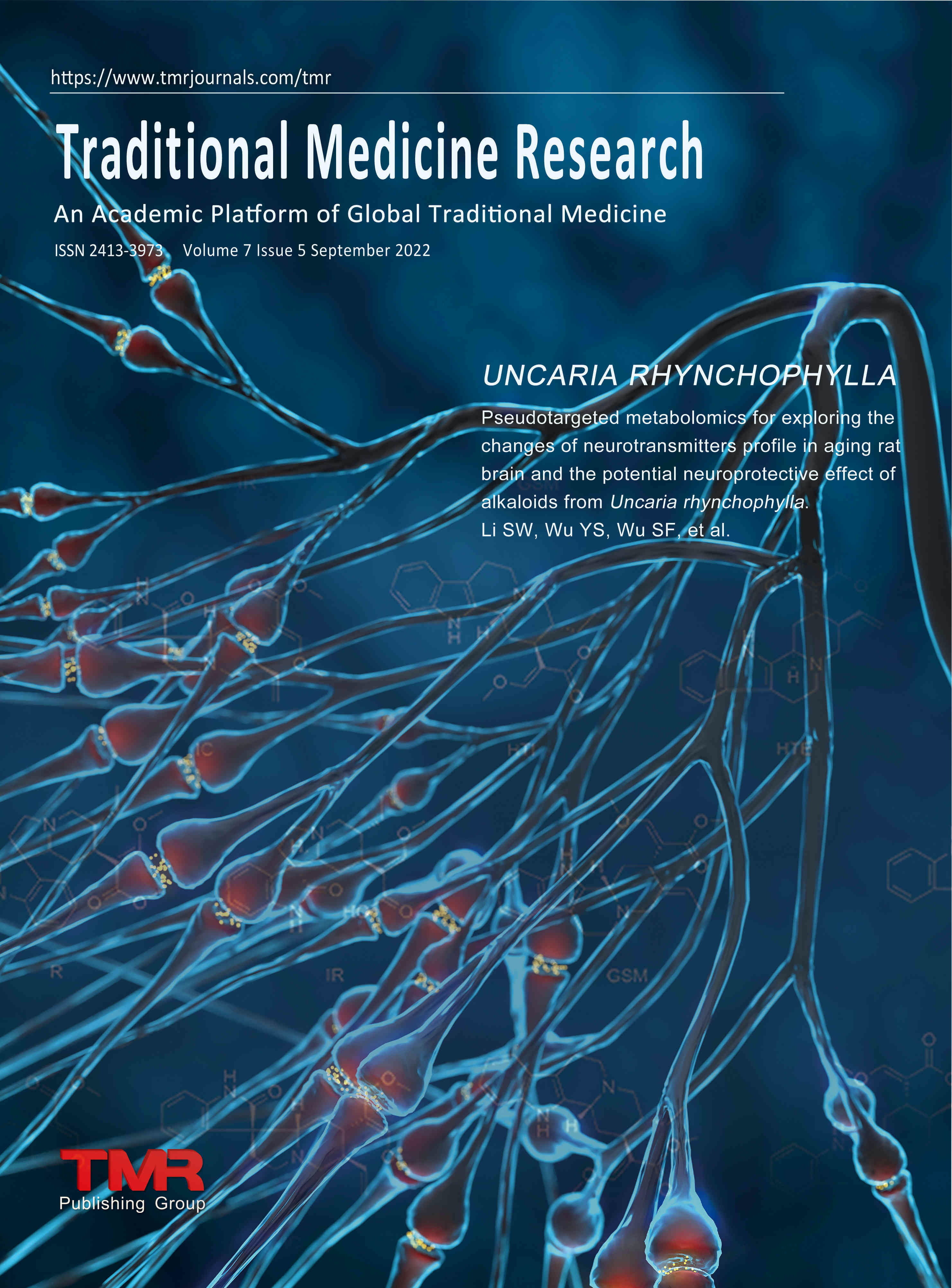
Theoretical Article
The jujube tree bears fruit endowed with substantial nutritional value and contains numerous phytochemical components with reported antioxidant, anti-cancer and neuroprotective properties.
Aafi E, Reza M, Mirabzadeh M

Experimental Study
The Licorice and Jujube formula is seen as commonly used and potentially effective for treating menopausal symptoms as per classical Chinese medicine.
Coyle ME, Liu J, Yang H, Wang K, Zhang AL, Guo X, Lu C, Xue CC

Randomised Controlled Trial
Consumption of jujube seed had a positive impact on improving the sleep quality of postmenopausal women and could be recommended as a useful herbal medication.
Mahmoudi R, Ansari S, Haghighizadeh MH, Maram NS, Montazeri S.

Review Article
Jujube fruits contain a high amount of various bioactive compounds exerting antioxidant, anti-inflammatory, antiobesity, anti-cardiovascular disease, hepatoprotective, antidiabetic, anti-microbial, anticancer, and gastrointestinal-protective effects.
Rashwan, A. K, Karim, N., Shishir, M. Rezaul Islam, Bao, T., Lu, Y., & Chen, W.

Review Article
Flavonoids from jujube have been found to stimulate the expression of erythropoietin (EPO), a hormone stimulating blood production.
Chen J, Tsim KWK

Review Article
Recent studies have indicated that jujube possesses a wide range of pharmacological activities in nervous system, cardiovascular system, as well as anti-oxidation and anti-cancer properties.
Chen J, Tsim KWK

Experimental Study
Jujube seed extract has been found to primarily reduce anxiety by regulating the GABAergic and serotonergic synapse pathways, specifically modulating GABRA1, HTR1A, and HTR2A.
Chen L, Zhang X, Hu C, Zhang Y, Zhang L, Kan J, Li B, Du J
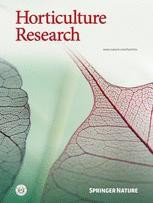
Review Article
In jujube fruit, the contents of sugar, vitamin C, and cyclic adenosine monophosphate (cAMP) are around 2, 100, and 1000 times those of apple, respectively.
Liu, M., Wang, J., Wang, L. et al.

Systematic Review
The study shows the promising potential of Suan Zao Ren as a multi-effect traditional Chinese medicine derived from the seeds of Ziziphus Jujuba.
Su-Rong He, Chong-Bo Zhao, Jing-Xia Zhang, Jing Wang, Bo Wu, Chun-Jie Wu,

Review Article
Jujube possesses neuroprotective activities, including protecting neuronal cells against neurotoxin stress, stimulating neuronal differentiation, increasing expression of neurotrophic factors, and promoting memory and learning.
Chen J, Liu X, Li Z, et al.

Experimental Study
Jujube-containing decoctions, used in Traditional Chinese Medicine, show neuro-protective and differentiating properties and enhance the function of multi-herbal concoctions.
Lam CTW, Gong AGW, Lam KYC, Zhang LM, Chen JP, Dong TTX, Lin HQ, Tsim KWK

Review Article
Among the bioactive compounds present in jujube fruit, triterpenic acids and polysaccharides have antiproliferative and anticancer effects on various cancer cell lines.
Zoya Tahergorabi, Mohammad Reza Abedini, Moodi Mitra, Mohammad Hassanpour Fard, and Hossein Beydokhti

Systematic Review
The bioactive components and biological activities were superior for green (unripe) jujube fruit (as pulp and seed) compared to the ripe fruit.
Sirithon Siriamornpuna, NatthidaWeerapreeyaku, Sahapat Barusrux

Experimental Study
Jujube fruit promotes the growth of nerve cells and boosts anti-oxidant enzyme production in brain cells.
Chen J, Yan AL, Lam KYC, Lam CTW, Li N, Yao P, Xiong A, Dong TTX, Tsim KWK

Review Article
Recent phytochemical studies of jujube fruits have shed some light on their biological effects, such as the anticancer, anti-inflammatory, antiobesity, immunostimulating, antioxidant, hepatoprotective, and gastrointestinal protective activities and inhibition of foam cell formation in macrophages.
Gao QH, Wu CS, Wang M.
Executive Summary
Write an executive summary in the form of a blog article on the topic of "Research into Chinese medicine treatment for Jujube" summarising the research below and using language that can be easily understood by patients and avoiding medical jargon using a professional and caring tone of voice.
Write an executive summary in the form of a blog article on the topic of "Researched Chinese medicine treatments for Jujube" summarising the research below in an objective and easy to understand way, and using language that can be easily understood by patients. Group the article into Chinese medicine treatments first, followed by nutrition and other treatments. Avoid using medical jargon and use a professional and caring tone of voice.
Write me a concise but easy to understand executive summary on the topic of "Chinese medicine treatments for Jujube" based on the following research that I will give you. Your summary should be 2 paragraphs long in Australian English spelling and include references to the studies.
A Clinical Study published in 2025 in the journal Scientific Reports found that Jujube syrup presented improved results in treating pediatric functional constipation compared to polyethylene glycol, demonstrating a potentially effective and safe alternative treatment. The researchers conducted a double-blind, randomized clinical trial involving children aged 2-10 years old diagnosed with functional constipation. These children were selected from patients referred to the gastroenterology clinic of 17-Shahrivar Hospital in Rasht, Iran. The eligible candidates were divided into two groups, each receiving either polyethylene glycol (PEG) or Ziziphus jujuba syrup (ZS) in a dosing range of 1-5 cc/kg/day. The patients were monitored over a three-month period, with bi-weekly check-ups in the first month, followed by monthly check-ups for the next two months. Additionally, liver and kidney function tests, as well as blood sugar levels, were verified at the start and end of the study. Out of 90 qualified children, 32 patients in the PEG group and 30 in the ZS group finished the follow-ups. The therapeutic response score in the group administered ZS showed a distinct improvement compared to those given PEG. Similarly, the average number of encopresis and pain scores, as measured by a visual analog scale, showed a significant reduction in the ZS group compared to the PEG group. Other indices, such as frequency of defecation and medication adherence, also showed a noticeable improvement in the ZS group. With only a few self-limiting side effects reported in the PEG group, it was determined that ZS provides a potential choice for functional constipation treatment without any adverse events or liver and kidney injury.
A Experimental Study published in 2024 in the journal Journal of Agricultural and Food Chemistry found that The ZJMP-2 polysaccharide fraction from jujube, consisting of various sugars and acid, significantly enhances immune cell activity and stimulates lymphocyte proliferation. The researchers isolated and purified a new water-soluble polysaccharide fraction, ZJMP-2, from the Jujube plant. Various scientific methods including Fourier transform infrared spectroscopy, high-performance gel permeation chromatography-laser light scattering, gas chromatography-mass spectrometry, scanning electron microscopy, atomic force microscopy, and nuclear magnetic resonance analyses were employed to characterize ZJMP-2. This polysaccharide is composed of glucose, galactose, arabinose, rhamnose, and galacturonic acid. The study determined its molecular structure and variations that may contribute to its immunoregulatory effect. In terms of the results, ZJMP-2 substantially increased the expression levels of proteins that are important in the immune response, resulting in the activation of macrophages - immune cells that destroy harmful organisms - and promoting the proliferation of lymphocytes - another type of immune cell. This resulted in observable activity in RAW264.7 cells and spleen lymphocytes. ZJMP-2 was also found to boost the heart, spleen, and bone marrow indices, along with spleen cell counts and peripheral blood cell counts. In addition, the number of heart and bone marrow cells in mice increased through the use of ZJMP-2.
A Animal Study published in 2024 in the journal Molecular Nutrition & Food Research found that Oral administration of Lactobacillus acidophilus 6074 fermented jujube juice can improve gut microbiota, alleviate intestinal inflammation, and reduce colon damage in mice. The study used jujube juice as the substrate fermented by L. acidophilus 6074 to observe its effects on gut microbiota, intestinal barrier function, oxidative stress, and inflammatory factors in mice with colitis. The process of fermentation caused significant changes in the compounds of the juice, particularly in organic acids and free amino acids. A high dose of the juice demonstrated significant improvements in overall colitis markers, including the physical condition of the colon and disease activity. Upon administering the fermented jujube juice, it was observed that the treatment promoted the reinforcement of the colonic mucosal barrier, boosting the expression of various tight junction proteins. Moreover, it inhibited the production of proinflammatory factors and reduced oxidative stress, thereby mitigating colon damage. The gut microbiota composition shifted as a result, demonstrating an increase in beneficial bacteria, a boost in short-chain fatty acids, and a reduction in harmful microorganisms. These findings indicate that the fermented juice can restore the balance in gut microbiota altered by intestinal inflammation and lessen the impact of colitis.
A Review Article published in 2024 in the journal Current Nutrition Reports found that Ziziphus jujuba and its main components, lupeol and betulinic acid, show promise in treating complications of metabolic syndrome, including diabetes, obesity, and hypertension. The research assessed the properties of Ziziphus jujuba and its main bioactive agents, lupeol and betulinic acid, in relation to metabolic syndrome. Investigations focussed on their potential roles in glucose uptake enhancement, hepatic glucose synthesis reduction, insulin sensitivity improvement, and lipid profile modulation. Studies involved identifying the influence of these substances on key signaling pathways and insulin signaling proteins, as well as evaluating their anti-adipogenic effects and capacity to improve endothelial function. Ziziphus jujuba and its constituents exhibited potential therapeutic benefits for metabolic syndrome by facilitating glucose uptake, reducing glucose synthesis, and improving insulin sensitivity. They also showed potential in moderating lipid synthesis and fat accumulation, demonstrating anti-fatty effects and a capacity to influence adipogenic enzymes and transcription factors. Moreover, these substances demonstrated enhanced endothelial function, reflecting positively on vascular health. These accumulative findings suggest promising potential for Z. jujuba, lupeol, and betulinic acid as natural treatments for metabolic syndrome complications.
A Meta-Analysis published in 2024 in the journal Clinical Nutrition Open Science found that Daily intake of Ziziphus jujuba can control weight and improve lipid profile indicators. In the methodology, randomized clinical trials were sourced from online resources like PubMed, Scopus, and ISI Web of Science till October 2022. From these resources, four suitable articles were picked for this research. The results section suggests that a notable decrease in body mass index (BMI), triglycerides (TG), total cholesterol (TC), and low-density lipoprotein (LDL) is observed in individuals consuming Ziziphus jujuba. However, there were no significant changes observed in fasting blood glucose (FBG) and high-density lipoprotein (HDL). These findings underscore the potential beneficial impact of Ziziphus jujuba consumption on certain metabolic indicators.
A Randomised Controlled Trial published in 2024 in the journal Complementary Therapies in Medicine found that Consuming jujube notably reduces waist circumference, triglycerides, and stress, while increasing high-density lipoprotein cholesterol in subjects with metabolic syndrome. In this parallel-group, randomized controlled trial, sixty participants diagnosed with metabolic syndrome were randomly assigned to either receive 30g of dried jujube powder or a placebo for an eight-week period. They were instructed to consume half of their given powder at two different points in the day. Four measurements were taken as primary outcomes: lipid profile, fasting blood glucose, waist circumference, and blood pressure. Additionally, mental health measures, such as depression, anxiety, and stress, were evaluated as secondary outcomes. The data analysis showed that consuming jujube didn't lead to significant reductions in fasting blood glucose, total cholesterol, low-density lipoprotein cholesterol, blood pressure, or depression and anxiety scores. However, compared to the placebo group, the group consuming jujube showed a key reduction in waist circumference and triglycerides, and an increase in high-density lipoprotein cholesterol. Moreover, an improvement in stress scores was observed in the jujube group. The study, however, had methodological shortcomings regarding effective blinding and testing for herb purity and potency.
A Animal Study published in 2024 in the journal Food Science & Nutrition found that Jujube fruit extracts significantly alleviate oxidative stress in rodent models, potentially offering a valuable dietary supplement against diseases linked to oxidative stress. In this study, relevant animal studies were sourced from various data platforms including PubMed, Web of Science, Embase, China National Knowledge Infrastructure, Wanfang Data Knowledge Service Platform, and VIP Periodical Service Platform. Risk of bias in the included studies was evaluated using the Systematic Review Center for Laboratory Animal Experimentation risk-of-bias tool. Conducting a meta-analysis followed the Cochrane Handbook for Systematic Reviews of Interventions guidelines and utilized Stata 17.0 software. Nineteen studies were ultimately incorporated into the meta-analysis. The meta-analysis indicated that jujube fruit extracts notably reduced the level of malonaldehyde, a marker of oxidative stress, and raised the levels of superoxide dismutase and glutathione peroxidase, both of which are antioxidant enzymes. However, the levels of another antioxidant enzyme, catalase, didn't exhibit significant improvement. The meta-analysis results uncovered considerable heterogeneity. Subsequent subgroup analysis suggested that the source of the target parameters, animal models used, and types of extract could be contributing to the observed heterogeneity. Despite questionable overall methodological quality in the included studies, the study underscores the potential of jujube fruit extracts as effective antioxidant dietary supplements, particularly useful in conditions where oxidative stress is a key pathogenic factor.
A Review Article published in 2024 in the journal Foods found that Jujube, a Chinese native plant with numerous active components, exhibits calming effects, nourishes blood, and strengthens the spleen and stomach, alongside promising neuroprotective and cardiovascular benefits. This study statistically evaluated and tracked the research status of Jujube over the past two decades. The research observed, among other things, the plant's traditional use in calming nerves, nourishing blood, and strengthening the spleen and stomach in traditional Chinese medicine. The study found that the Jujube has numerous effective components, including polysaccharides, phenols, and triterpene acids. The study delved into understanding how these components can provide a variety of pharmacological activities. Such activities include neuroprotection, as well as the prevention and treatment of cardiovascular diseases. The study also expounded comprehensively the molecular mechanisms and efficacies of Jujube. The research, therefore, provides an exhaustive appraisal of the pharmacological potentials of the Jujube plant and its prospective industrial relevance in food and pharmaceutical industries.
A Experimental Study published in 2023 in the journal Foods found that The fermented jujube seeds extract significantly enhances sleep by binding to the GABA receptors, thus offers a promising natural alternative for sleep disorders treatment. Methodology: An aqueous extract of jujube seeds (ZW) was fermented, following a starch-removing enzymatic degradation process, to increase its γ-aminobutyric acid (GABA) content, resulting in a fermented product (ZW-FM). The sleep-promoting effect of ZW-FM was evaluated using rodent models; specifically, sleep tests were performed on ICR mice with pentobarbital-induced sleep, while the electroencephalography analysis was undertaken in Sprague Dawley rats. Awakening relief effects of ZW-FM were assessed using a caffeine-induced insomnia model. To understand the mechanism, GABA receptor type A (GABA) antagonists were used. Results: The groups given ZW-FM treatment displayed a longer sleep duration, particularly increased δ-wave time during non-rapid eye movement sleep, and reduced sleep latency. Particularly, the model treated with ZW-FM showed an increase in non-rapid-eye-movement sleep and a reduction in the REM sleep duration, brought about by caffeine treatment. The enhanced sleep induction caused by ZW-FM was hindered by GABA receptor antagonists, thereby validating the involvement of a GABAergic mechanism in promoting sleep.
A Review Article published in 2022 in the journal Acta Horticulturae found that Chinese jujube contains cAMP, a compound usually absent in plant cells, which may accelerate our understanding of plant cAMP metabolism. The research process involved the separation and measurement of the cAMP compound in Chinese jujube fruit. Various techniques were applied to determine changes in cAMP content throughout fruit development. In addition, the researchers differentiated the cAMP concentration among various cultivars. The findings of the study indicated that cAMP, usually absent in plant cells, is present in the fruits of Chinese jujube. This was determined by identifying subtle variations in the cAMP content during fruit development and across different cultivars. Furthermore, potential adenylate cyclase genes were identified, providing a new perspective to the study of cAMP metabolism in plants.
A Review Article published in 2022 in the journal Journal of Agricultural and Food Chemistry found that Jujube nutrients may offer potential therapeutic benefits including antioxidant, antibacterial, anti-inflammatory functions, and improving sleep quality and learning. The methodology used for this study involves a comprehensive review of existing research about Wild jujube, giving particular focus on its phytonutrients, biological functions, metabolism of bioactive compounds, and applications. The study does not seem to detail a specific experimental procedure, but instead bases its conclusions on existing literature. Various parts of the wild jujube plant, such as the fruits, seeds and leaves, were examined for their potential role as food, medicine, or health care aids. The results from the review suggest that the different parts of the wild jujube plant play many roles. The fruits have been noted for their antioxidant, antibacterial, and anti-inflammatory properties, and as ingredients preventing aging. The mature seeds have been found to have potential beneficial effects on central nervous system diseases, particularly in the treatment of insomnia and the enhancement of learning and memory.
A Theoretical Article published in 2022 in the journal Traditional Medicine Research found that The jujube tree bears fruit endowed with substantial nutritional value and contains numerous phytochemical components with reported antioxidant, anti-cancer and neuroprotective properties. The research implemented an analysis of the jujube tree, its fruit, and its long history of usage in traditional medicine, focusing primarily on its use in traditional Persian and Chinese medicines. The varied geographical distribution of the tree was studied, especially its presence in tropical and subtropical regions across Europe and Asia. Researchers took into account the tree’s resilience to soil salinity and alkalinity as part of its general characteristics. The core of the study involved an in-depth investigation into the nutritional composition and pharmacological properties of the jujube fruit. The fruit's contents were categorized into proteins, minerals, vitamins, organic acids, and carbohydrates. Furthermore, a range of phytochemical components such as polyphenols, flavonoids, terpenoids, anthocyanins, alkaloids, and carotenoids were identified. Research noted both the fruit's nutraceutical and cosmeceutical potential. It also explored the medicinal properties of all elements of the plant, not just the fruit. The physiological impacts of the jujube were also evaluated across various medical contexts, seeking to understand its impact on different organs and tissues, as well as its influence on various health conditions and concerns. Culminating in the identification of antioxidant, anti-cancer, antimicrobial, neuroprotective, cardioprotective, hepatoprotective properties. Noteworthy, are also its health-promoting effects, with strong references to anti-aging properties.
A Experimental Study published in 2021 in the journal Complementary Therapies in Medicine found that The Licorice and Jujube formula is seen as commonly used and potentially effective for treating menopausal symptoms as per classical Chinese medicine. The methodology of this study involved exploring classical Chinese medicine textbooks to find the most frequent herbal mix used for symptoms similar to menopause. The approach taken was to sort and identify the formulas from the Encyclopedia of Traditional Chinese Medicine, a comprehensive resource in this field. Following this, a thorough review of randomized controlled trials was performed in order to determine the efficacy of the most common formula. In terms of results, it was discovered that the Licorice and Jujube formula (LJF) was the most commonly found, mentioned in 36% of the analyzed references. The review of controlled trials revealed that the LJF might be effectively utilized for the improvement of sleep-related symptoms. Additionally, experimental studies hinted at potential benefits of the LJF, including sedative, antidepressant-like, estrogenic, and antiprogestogenic effects.
A Randomised Controlled Trial published in 2020 in the journal BioMedicine found that Consumption of jujube seed had a positive impact on improving the sleep quality of postmenopausal women and could be recommended as a useful herbal medication. The results show that the medicinal jujube seed capsule improved the sleep quality of postmenopausal women. Thus, it could be recommended as a safe plant with fewer complications compared to chemical and hormone drugs for the treatment of sleep disorders. Also, during the period of consuming jujube seed capsule in this study, except for a few cases of gastrointestinal disorders and in similar studies with this herbal medicine, consumers have reported no specific side effects. Therefore, considering that about one-third of adults in the world suffer from sleep disorders, the high prevalence of sleep disorders in postmenopausal women, and the lower cost of treatment by jujube seed capsule compared to other treatments, it is suggested implementing this treatment as a useful method in improving sleep quality in postmenopausal women.
A Review Article published in 2020 in the journal Journal of Functional Foods found that Jujube fruits contain a high amount of various bioactive compounds exerting antioxidant, anti-inflammatory, antiobesity, anti-cardiovascular disease, hepatoprotective, antidiabetic, anti-microbial, anticancer, and gastrointestinal-protective effects. The scientific evidence has shown that jujube fruits contain a high amount of various bioactive compounds, including ascorbic acid, triterpenic acids, phenolic acids, amino acids, saponins, cerebrosides, flavonoids, polysaccharides, and mineral constituents. These phytoconstituents play important roles to suppress different diseases, exerting the antioxidant, anti-inflammatory, antiobesity, anti-cardiovascular disease, hepatoprotective, antidiabetic, anti-microbial, anticancer, and gastrointestinal-protective effects.
A Review Article published in 2020 in the journal Frontiers in Pharmacology found that Flavonoids from jujube have been found to stimulate the expression of erythropoietin (EPO), a hormone stimulating blood production. Jujube promotes erythropoiesis via activation of hypoxia inducible factor-induced erythropoietin, possesses potential capacity in recycling heme iron during erythrophagocytosis, exhibits bidirectional role in regulating immune response under different conditions, contains numerous minerals including iron.
A Review Article published in 2020 in the journal Frontiers in Pharmacology found that Recent studies have indicated that jujube possesses a wide range of pharmacological activities in nervous system, cardiovascular system, as well as anti-oxidation and anti-cancer properties. Traditionally in China, jujube is considered as a medicinal fruit that is being used in treating blood deficiency. In this review, the beneficial effects of jujubes on the hematopoietic functions are summarized and discussed. As illustrated in cell and animal models, the application of jujube extract possessed beneficial effects, including regulation of erythropoiesis via activation of hypoxia inducible factor-induced erythropoietin, potential capacity in recycling heme iron during erythrophagocytosis and bi-directional regulation of immune response. Thus, the blood-nourishing function of jujube is being proposed here. Flavonoid, polysaccharide and triterpenoid within jujube could serve as the potential active ingredients accounting for the aforementioned health benefits. Taken together, these findings provide several lines of evidence for further development of jujube as supplementary products for prevention and/or treatment of anemia.
A Experimental Study published in 2020 in the journal Frontiers in Pharmacology found that Jujube seed extract has been found to primarily reduce anxiety by regulating the GABAergic and serotonergic synapse pathways, specifically modulating GABRA1, HTR1A, and HTR2A. The research relied on a system biology method supported by Ultra Performance Liquid Chromatography Quadrupole Time of Flight Mass Spectrometry (UPLC-Q-TOF/MS) and Real-Time Quantitative Polymerase Chain Reaction (RT-qPCR). Initially, 35 phytochemicals were identified from the Jujube seed extract, which related to 71 anxiolytic targets. Further investigations, including protein-protein interaction, gene cluster, Gene Ontology, and Kyoto Encyclopedia of Genes and Genomes (KEGG) pathways analyses, were conducted to identify the anxiolytic mechanisms of the extract. The results highlighted that the main anxiolytic mechanisms of the Jujube seed extract were linked to the regulation of serotonergic and GABAergic synapse pathways. The extract's impact on the mRNA expressions of multiple gamma-aminobutyric acid type A (GABA) and serotonin (5-HT) receptors subtypes was verified in human neuroblastoma cells. Surprisingly, the extract (250 μg/mL) not only amplified the mRNA level of GABRA1 and GABRA3 alongside HTR1A, HTR2A, and HTR2B in untreated cells but also suppressed the overexpressed mRNA of GABRA1, GABRA2, HTR1A, and HTR2A in stress-induced cells.
A Review Article published in 2020 in the journal Horticulture Research found that In jujube fruit, the contents of sugar, vitamin C, and cyclic adenosine monophosphate (cAMP) are around 2, 100, and 1000 times those of apple, respectively. The fruit is particularly rich in nutrients, and its contents of sugar, vitamin C and B, cyclic nucleotide, proline, triterpenic acid, potassium, iron, and zinc are the highest among many fruits. The contents of sugar, vitamin C, and cyclic adenosine monophosphate (cAMP) are around 2, 100, and 1000 times those of apple, respectively. The fruit is also a rich source of polysaccharides, triterpenic acids, flavonoids, alkaloids, polyphenols, and pigments.
A Systematic Review published in 2020 in the journal Evidence-Based Complementary and Alternative Medicine found that The study shows the promising potential of Suan Zao Ren as a multi-effect traditional Chinese medicine derived from the seeds of Ziziphus Jujuba. The methodology of the research was primarily a comprehensive literature review of Ziziphi Spinosae Semen (aka Suan Zao Ren). The team explored the botanical characteristics, traditional uses, pharmacology, and discovered compounds in the seeds of Ziziphus Jujuba. In regards to the results of the review, more than 150 compounds were identified in Ziziphi Spinosae Semen. These compounds, which mainly include terpenoids, flavonoids and others, show various biological activities. It was found that the seeds are particularly prominent in having sedative and hypnotic effects. Other properties discovered include antitumor potential, improvement to learning and memory, anti-inflammatory, antioxidative, anti-aging, alongside lower blood pressure and lipid levels. Traditional usage of the seeds for the treatment of insomnia, forgetfulness, headaches and dizziness were confirmed by the review.
A Review Article published in 2017 in the journal Evidence-Based Complementary and Alternative Medicine found that Jujube possesses neuroprotective activities, including protecting neuronal cells against neurotoxin stress, stimulating neuronal differentiation, increasing expression of neurotrophic factors, and promoting memory and learning. Jujube possesses neuroprotective activities, including protecting neuronal cells against neurotoxin stress, stimulating neuronal differentiation, increasing expression of neurotrophic factors, and promoting memory and learning. Flavonoid, cAMP, and jujuboside could be the potential bioactive ingredients to account for the aforesaid biological activities. These findings imply that jujube is a potential candidate for development of health supplements for prevention and/or treatment of neurological diseases.
A Experimental Study published in 2016 in the journal Journal of Ethnopharmacology found that Jujube-containing decoctions, used in Traditional Chinese Medicine, show neuro-protective and differentiating properties and enhance the function of multi-herbal concoctions. The research first studied the effect of three chemically standardized jujube-containing decoctions named Guizhi Tang, Neibu Dangguijianzhong Tang and ZaoTang on cultured PC12 cells. To do this, they assessed the protein expressions of neurofilaments following the herbal treatment through a process known as western blot. The research team also observed neurite outgrowth in the PC12 cells post-treatment using a light microscope equipped with phase-contrast condenser and SPOT imaging software. Furthermore, they evaluated the protective effect of the herbal extracts on tBHP-induced cytotoxicity using an MTT assay. Additionally, they transfected a luciferase reporter construct carrying repeats of antioxidant response elements and a downstream reporter gene into PC12 cells to understand if the decoctions could trigger transcriptional activation of these response elements. The mRNA expression of antioxidant enzymes following the herbal treatment was analyzed via quantitative real-time PCR. The study found that these jujube-containing decoctions exhibited similar protective and beneficial properties for the brain. The decoctions were observed to induce the protein expression of neurofilaments and cause neurite outgrowth. These herbal treatments were found to protect PC12 cells against oxidative stress-induced apoptosis in a dose-dependent manner. Further, they triggered the mRNA expressions of essential anti-oxidation genes, resulting in the activation of antioxidant response elements. This study highlights the enhancement effect of jujube in a multi-herbal decoction, demonstrating its neuro-protective and differentiating property.
A Review Article published in 2015 in the journal Journal of Cancer Research and Therapeutics found that Among the bioactive compounds present in jujube fruit, triterpenic acids and polysaccharides have antiproliferative and anticancer effects on various cancer cell lines. Phytochemical data combined with information about biological activity confirm that jujube fruits are rich in bioactive compounds that can benefit human health. This review article shows that among the bioactive compounds present in jujube fruit, triterpenic acids and polysaccharides have antiproliferative and anticancer effects on various cancer cell lines. It seems that the induction of apoptosis is one of the main mechanisms for the anticancer activities of the jujube fruit, due to the presence of the bioactive compounds. However, the biological effects of other identified and unidentified compounds in these fruits should be also investigated in areas where there are suitable climatic conditions for the cultivation of these plants.
A Systematic Review published in 2014 in the journal Journal of Functional Foods found that The bioactive components and biological activities were superior for green (unripe) jujube fruit (as pulp and seed) compared to the ripe fruit. Compared to the properties of ripe pulp, the green pulp of each variety possessed higher phenolic contents, DPPH scavenging activity, and FRAP value. The anti-glycation properties of the jujube samples ranged between 52 and 72%, depending on the ripening stage and variety. Phenolic content was positively correlated with antioxidant and anti-glycation activities, but not with total flavonoid content. Green jujube pulp possessed greater anti-glycation than the ripe jujube pulp in all varieties studied. The water extracts of Bombay and Taiwan jujubes caused moderate Jurkat leukemic cell deaths but with low apoptosis induction effects. This study provides practical information about how best to take advantage of the bioactive compounds and health implications of the jujube as a potential source for functional and nutritive applications.
A Experimental Study published in 2014 in the journal Phytotherapy Research found that Jujube fruit promotes the growth of nerve cells and boosts anti-oxidant enzyme production in brain cells. The methodology focused on the application of a water extract from the jujube fruit to cultured astrocytes (star-shaped glial cells in the brain and spinal cord) and observing any resulting changes over a 24-hour period. Researchers utilized a protein kinase A inhibitor, H89, to ascertain if it lessened the apparent jujube-induced expression of neurotrophic factors, assessed in a concentration-dependent manner. In the discussion of results, it was established that the jujube extract effectively stimulated the expression of several key neurotrophic factors including nerve growth factor, brain-derived neurotrophic factor and glial cell line-derived neurotrophic factor. These are pivotal in neural survival, growth, and differentiation. Concurrently, the extract also enhanced the transcriptional expressions of various significant enzymes responsible for anti-oxidation in a comparable concentration-dependent manner, indicating that jujube not only contributes to neural growth but also fosters the astrocytes' resistance to oxidative stress.
A Review Article published in 2013 in the journal Journal of Agricultural and Food Chemistry found that Recent phytochemical studies of jujube fruits have shed some light on their biological effects, such as the anticancer, anti-inflammatory, antiobesity, immunostimulating, antioxidant, hepatoprotective, and gastrointestinal protective activities and inhibition of foam cell formation in macrophages. The nutritional jujube (Ziziphus jujube Mill.) fruit belonging to the Rhamnaceous family grows mostly in Europe, southern and eastern Asia, and Australia, especially the inland region of northern China. Jujube has a long history of usage as a fruit and remedy. The main biologically active components are vitamin C, phenolics, flavonoids, triterpenic acids, and polysaccharides. Recent phytochemical studies of jujube fruits have shed some light on their biological effects, such as the anticancer, anti-inflammatory, antiobesity, immunostimulating, antioxidant, hepatoprotective, and gastrointestinal protective activities and inhibition of foam cell formation in macrophages. A stronger focus on clinical studies and phytochemical definition of jujube fruits will be essential for future research efforts. This review may be useful for predicting other medicinal uses and potential drug or food interactions and may be beneficial for people living where the jujube fruits are prevalent and health care resources are scarce.
Moderation Tools
Topic
Sign In
Users not signed in are limited to viewing the 5 most recent items of content.